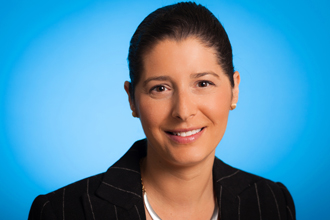Web tool Genomics ADvISER aims to demystify genomic sequencing and the “Pandora’s box” dilemma

By Michael Oliveira

Dr. Yvonne Bombard
If taking a single test for an illness could also reveal your odds of developing a long list of other diseases in the future, would you be interested in learning everything you could?
Even if the test could deliver a dire forecast of early onset Alzheimer’s, Parkinson’s disease or muscular dystrophy?
Or information suggesting your genetic code puts your future offspring at high risk for an incurable disease?
Is ignorance bliss or is knowledge power?
The test is called genomic sequencing, which allows doctors to search a person’s entire DNA for genetic clues about one particular condition – but it also reveals a slew of other data, which may or may not present troubling news about a person’s risk to develop additional health risks, unrelated to their condition.
Dr. Yvonne Bombard has been working on an interactive web tool called the Genomics ADvISER to help patients understand the process of genome sequencing and the extra information it can reveal. After watching an easy-to-understand animated video about the science, a series of questions helps patients determine what extra health risk information they might want to learn when getting their genome sequenced.
“The issue is that in additional to finding something you’re looking for, you might also find some other extra information you weren’t. When you start to open Pandora’s box to find one thing you were after, you might find more,” explained Dr. Bombard, a genomics health services researcher and scientist at the Li Ka Shing Knowledge Institute of St. Michael’s Hospital, and an assistant professor at the University of Toronto.
“And from the lab perspective, when they’re ordering these types of tests they don’t want to be holding information that might be important for a patient’s health and not give it to them.”
Today, genomic sequencing is typically used to find a genetic cause of a patient’s condition, such as a hereditary form of cancer, a rare disease, or a child’s developmental delay. Some cancer patients get their tumours sequenced in a bid to identify the best treatment.
The idea for the Genomics ADvISER came from the understanding that genetic counsellors – who can guide patients through the same information in person – are in very high demand. Some patients might have to wait as long as eight to 12 months for a consultation with a genetic counsellor. Meanwhile, doctors are also challenged to find the time to walk their patients through the nearly endless possible incidental findings that genomic sequencing offers.
The Genomics ADvISER has completed a clinical trial and could still be tweaked to reflect some identified gaps with the tool.
For one thing, some patients indicated “they still needed a gut check with a human at the end.”
“And certainly this isn’t meant to replace counsellors,” she said. “The idea is to be able to have this fill a gap in our health-care system.”
Family physician Dr. June Carroll said genomic sequencing hasn’t filtered down to her type of practice very much yet but she thinks Genomic ADvISOR has “huge potential” for when it does.
“I think the public’s level of knowledge is still basic, if any, because this is a very new technology that’s just coming into medicine,” Dr. Carroll said.
“I think it’s an amazing tool, I think the video is incredibly useful for educating the public and it would be very helpful for health-care providers.”
About St. Michael’s Hospital
St. Michael’s Hospital provides compassionate care to all who enter its doors. The hospital also provides outstanding medical education to future health care professionals in more than 29 academic disciplines. Critical care and trauma, heart disease, neurosurgery, diabetes, cancer care, care of the homeless and global health are among the Hospital’s recognized areas of expertise. Through the Keenan Research Centre and the Li Ka Shing International Healthcare Education Centre, which make up the Li Ka Shing Knowledge Institute, research and education at St. Michael’s Hospital are recognized and make an impact around the world. Founded in 1892, the hospital is fully affiliated with the University of Toronto.
